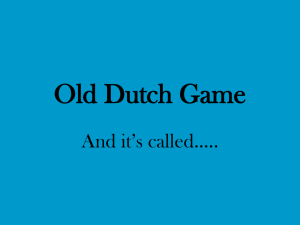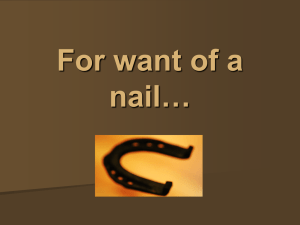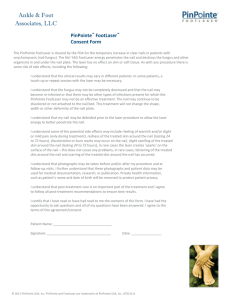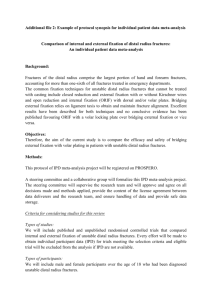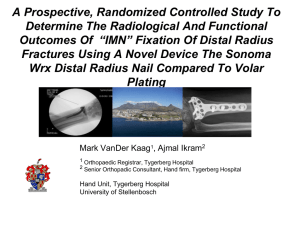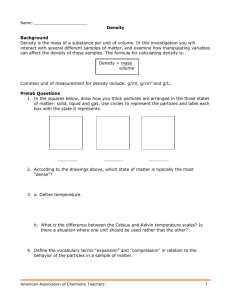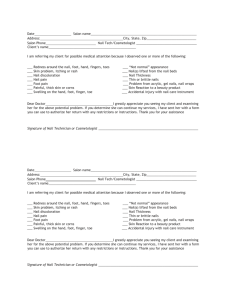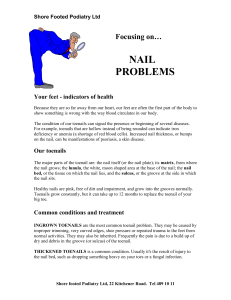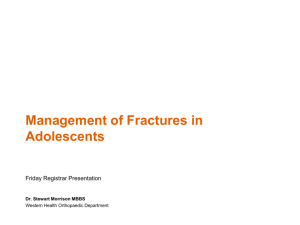Distal phalanx
advertisement
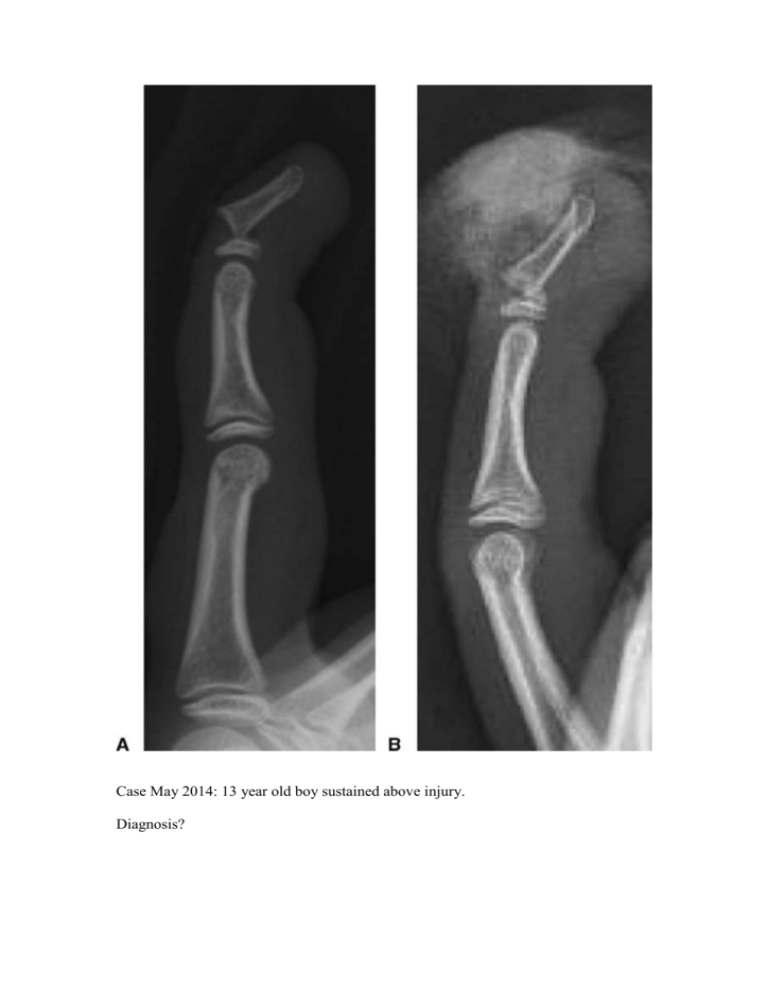
Case May 2014: 13 year old boy sustained above injury. Diagnosis? Diagnosis: Seymour Fractures Defn: Seymour Fractures: Juxta-epiphyseal fractures of the terminal phalanx of the finger + Laceration of the nail bed + flexion deformity at the fracture site, and frequently ungula subluxation. Salter-Harris I Clinical Features Common in adolescent Finger resembles a mallet finger deformity with the base of the nail lying superficial to the proximal nail fold. This injury occurs owing to the weakness of the extensor tendon and the volar plate only insert into the epiphysis, and the flexor tendon spans the epiphysis and inserts on the metaphysis. According to the literature, Seymour fractures are rare and potentially serious injuries requiring early and adequate treatment, particularly in the case of open fractures. A standardized treatment protocol like ours might aid to prevent complications including infections and growth disturbances of the distal phalanx. Evaluation of the outcome in our series demonstrated good clinical results and a low rate of complications after performing reduction and splint fixation in closed fractures and reduction, debridement, and K-wire fixation for instability in open injuries. Treatment Debridement + open reduction of the distal fragment + nail bed repair, nail fixation with sutures or adhesive strips, and splinting. Open reduction, debridement, and K-wire fixation across the DIPJ There is a great temptation to remove the partially avulsed nail. This may convert an injury that is easily treated into one that can become troublesome because removal of the nail tends to make the fracture more unstable. Conservative treatment with splinting was performed in 18 of the 25 patients with good results [1]. Complications 1. Nail growth disturbances 2. Long term growth disturbance of the bony distal phalanx : rare. Premature closure of the physis is usually secondary to infection rather than to direct injury of the growth plate9,11 by K-wires. 3. Complete loss of DIPJ flexion: rare References 1. J Hand Surg 2013;38A:258–264.

